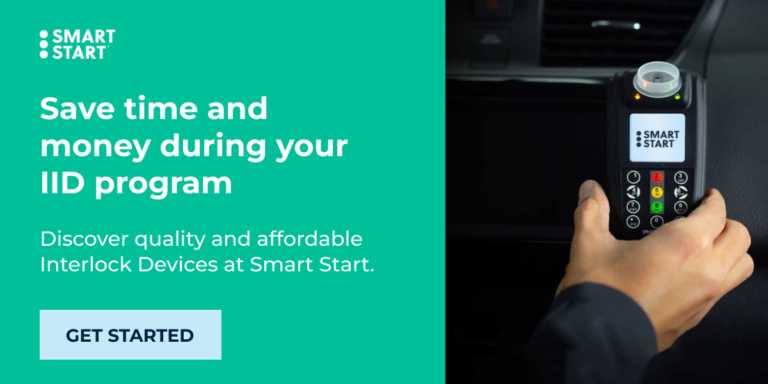Driving with a Restricted License in Colorado: What You Need to Know
If you’ve been convicted of a DUI or have other driving-related infractions, you may still be able to drive—with some restrictions. Understanding the rules of any restrictions on your license is critical to regaining the right to drive without limitations. Plus, following the rules of your restricted license gives you the opportunity to show that you can drive responsibly while waiting for the full reinstatement of your license.
In Colorado, the restrictions related to a DUI are different than other restricted licenses. If you’re confused about how to handle your restricted license in Colorado, check out this helpful guide. In it, we explain the difference between a DUI restricted license and a standard restricted license, then break down the details of complying with your DUI limitations.
What Are Restricted Licenses?
There are two kinds of restricted licenses in Colorado: probationary license and Ignition Interlock restricted license.
If you receive a Colorado DUI, your license will typically be revoked for a certain amount of time. However, you may be able to get it reinstated early if you opt for an Ignition Interlock restricted license. These licenses allow you to drive freely as long as you install an Ignition Interlock Device (IID) in your car.
The term “restricted license” can also refer to a probationary driver’s license, or “red” license. Probationary licenses are typically given to people with a suspended license from accumulating too many points from traffic and driving violations. They can also be administered to people who have had their licenses suspended.
People with restricted licenses can typically only drive their cars for a particular purpose, such as driving to work. Additionally, you aren’t eligible for a probationary license if you have a DUI conviction, so it’s important to understand how they differ from Ignition Interlock restricted licenses.
What Are the Driving Restrictions?
There’s only one main limitation for Ignition Interlock restricted devices—installing and maintaining an IID in any motor vehicle you drive. Some people only have an IID in place for a few months, while others will have them for multiple years. You may also need to fulfill other requirements related to your DUI, such as attending an alcohol abuse course or paying fines related to your case.
We’ve mentioned them several times already, but you may still be wondering, what exactly is an Ignition Interlock Device?
IIDs are in-car breathalyzers that test your blood alcohol content (BAC) before allowing you to turn on your vehicle. If the IID finds you have a certain BAC, your car won’t start. Additionally, even after successfully starting your vehicle, the IID will ask for re-tests as you drive to ensure that you’re staying sober while operating your vehicle.
If you do have alcohol in your system, the IID will record the attempt and report it to the court system. Along with having the device installed, you also have to follow the rules of having the device in your motor vehicle, such as:
- Not tampering with the device
- Having the device regularly checked or maintained every 60 days
- Not attempting to operate the vehicle while under the influence
See related: Is a DUI a Felony in Colorado?
Eligibility for an Ignition Interlock Restricted License: Colorado Requirements
The court will determine whether you’re eligible to have your license reinstated early by installing an Ignition Interlock Device. However, here are the basic guidelines for the state of Colorado for arrests that occurred after January 1, 2023:
For Your First DUI
If you’re dealing with your first DUI conviction, you can potentially reinstate your license immediately after having your license revoked. This means that once you have the IID installed and you apply for reinstatement, you can start driving right away. If you had a BAC below 0.149, your license will typically be revoked for nine months. If you apply for an Ignition Interlock restricted license, you’ll need to have the IID in your car for the full nine-month period.
If your BAC was above .15, you’ll likely have a longer Interlock requirement and revocation period. You can still be eligible to reinstate your license right away, but you’ll usually need to maintain your IID for two years.
The state of Colorado also has guidelines for situations where you refuse chemical testing and your BAC isn’t recorded. In these situations, you’ll be able to apply for an Interlock restricted license in Colorado after two months of having it revoked. Then, you’ll need to have an Interlock device for two years.
For Additional DUIs
Once you already have a DUI conviction on your record, you’ll have to wait longer before you can apply for an Ignition Interlock restricted license. For a 2nd DUI in Colorado, you may still apply for reinstatement right away. However, you’ll have a two-year Interlock requirement regardless of your BAC.
If you opted not to agree to chemical testing, you’ll have your license fully revoked for two months, then become eligible for a two-year Interlock restriction on your license.
Other Situations
If you have another traffic-related conviction along with an alcohol-related offense, you may also end up needing an IID. For example, you may have an alcohol driving offense combined with reckless driving or driving with a suspended license. In these situations, your license will be fully revoked for two months before you can apply for early reinstatement.
How an Ignition Interlock Device Can Help
While maintaining an IID can take some effort, it’s important to see the benefits of having an IID in your car. In Colorado, you need an IID to qualify for a restricted license after having your driving privilege revoked due to a DUI. This means that without an IID, you’ll have to wait out your full revocation period without being able to drive at all.
For this reason, you should think of your IID as a helpful tool that allows you the freedom to drive while demonstrating that you’re responsible enough to operate a vehicle freely in the future. An IID can also be a reminder to drive responsibly at all times. Because you have to submit to an in-car breathalyzer each time you want to drive, you’ll need to be mindful of your drinking habits and ensure that you’re fully sober each time you get behind the wheel.
Tips for Compliance
Once you have an IID in your car, you can start working toward earning back your full driving privilege. In order to comply with your Ignition Interlock restricted license, focus on using the device as it was intended. This involves ensuring that you’re always sober when you drive. You may even want to avoid using mouthwash before driving to ensure you don’t falsely trigger the system.
Here are a few other tips for using your IID appropriately:
- Familiarize yourself with the operation instructions for your specific device. Knowing how to use your IID can streamline the process of starting your car.
- Never ask someone else to blow into your IID on your behalf when you plan on driving. If someone else wants to drive your vehicle, they’ll also have to pass the IID breathalyzer.
- Drive your car regularly to keep the battery charged and avoid any issues with powering your Interlock device.
- Call your IID provider right away if you encounter any issues. Fixing issues in a timely manner can help prevent any delays in the full reinstatement of your driver’s license.
- Complete any alcohol education classes or other required courses to ensure that you’re ready to get your license back once you complete your Ignition Interlock requirement period.
- Obtain SR-22 insurance and submit any necessary forms to show that you’re fulfilling your minimum insurance requirements.
- If you drive multiple vehicles, install and maintain an Interlock device for each one.
If you do attempt to drive while under the influence with an IID in your car, you could be interfering with your ability to get your unrestricted license back. The court will be able to see if you’ve attempted to drink and drive, and they may use this information to fully revoke your license or lengthen your probationary period. For example, having multiple lockouts in a month could result in your restriction being extended.
Manage Your Restricted License With Smart Start
If you have a DUI, having a Colorado Interlock Device installed in your car is key to getting back on the road. By proactively installing an appropriate IID into your vehicle, you can secure your restricted driver’s license in a timely manner and start driving again as soon as possible. Plus, once you have your IID in your car, you’ll be on the right track to complete your probationary period and eventually regain your full driving privileges.
Getting a DUI can be a stressful experience, but setting up an Ignition Interlock Device for your car doesn’t have to be—especially if you partner with Smart Start. At Smart Start, we offer IIDs that comply with Colorado state requirements and are easy to install, so you can get back on the road in a timely manner. Plus, Smart Start provides round-the-clock support, so you won’t have to worry about complex troubleshooting.
Explore all of our Ignition Interlock solutions today to get started.
Sources:
- Colorado Department of Revenue. Driver Records – Frequently Asked Questions. https://dmv.colorado.gov/driver-services-frequently-asked-questions#Interlock
- Colorado Department of Revenue. Ignition Interlock Restricted License. https://dmv.colorado.gov/ignition-interlock-restricted-license
- State of Colorado. Interlock restricted licences. https://www.sos.state.co.us/CCR/GenerateRulePdf.do?ruleVersionId=900
Schedule an Installation
Get a quick and easy IID installation with Smart Start! Get started today!
¡Obtenga una instalación rápida y fácil de IID con Smart Start! ¡Empieza hoy mismo!
"* (required)" indicates required fields






